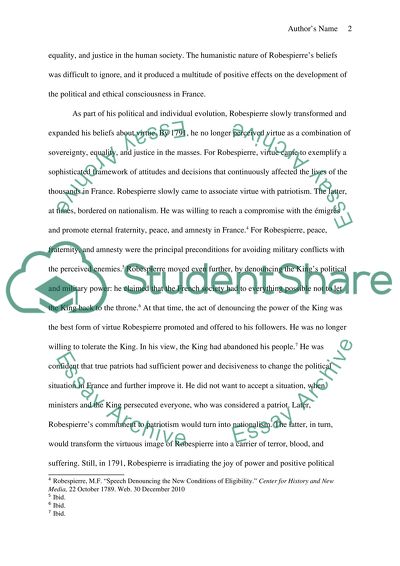Cite this document
(“Enlightenment Virtue in Robespierre's Writings and Speeches (RESEARCH Essay”, n.d.)
Enlightenment Virtue in Robespierre's Writings and Speeches (RESEARCH Essay. Retrieved from https://studentshare.org/miscellaneous/1574929-enlightenment-virtue-in-robespierres-writings-and-speeches-research-provided
Enlightenment Virtue in Robespierre's Writings and Speeches (RESEARCH Essay. Retrieved from https://studentshare.org/miscellaneous/1574929-enlightenment-virtue-in-robespierres-writings-and-speeches-research-provided
(Enlightenment Virtue in Robespierre'S Writings and Speeches (RESEARCH Essay)
Enlightenment Virtue in Robespierre'S Writings and Speeches (RESEARCH Essay. https://studentshare.org/miscellaneous/1574929-enlightenment-virtue-in-robespierres-writings-and-speeches-research-provided.
Enlightenment Virtue in Robespierre'S Writings and Speeches (RESEARCH Essay. https://studentshare.org/miscellaneous/1574929-enlightenment-virtue-in-robespierres-writings-and-speeches-research-provided.
“Enlightenment Virtue in Robespierre'S Writings and Speeches (RESEARCH Essay”, n.d. https://studentshare.org/miscellaneous/1574929-enlightenment-virtue-in-robespierres-writings-and-speeches-research-provided.


